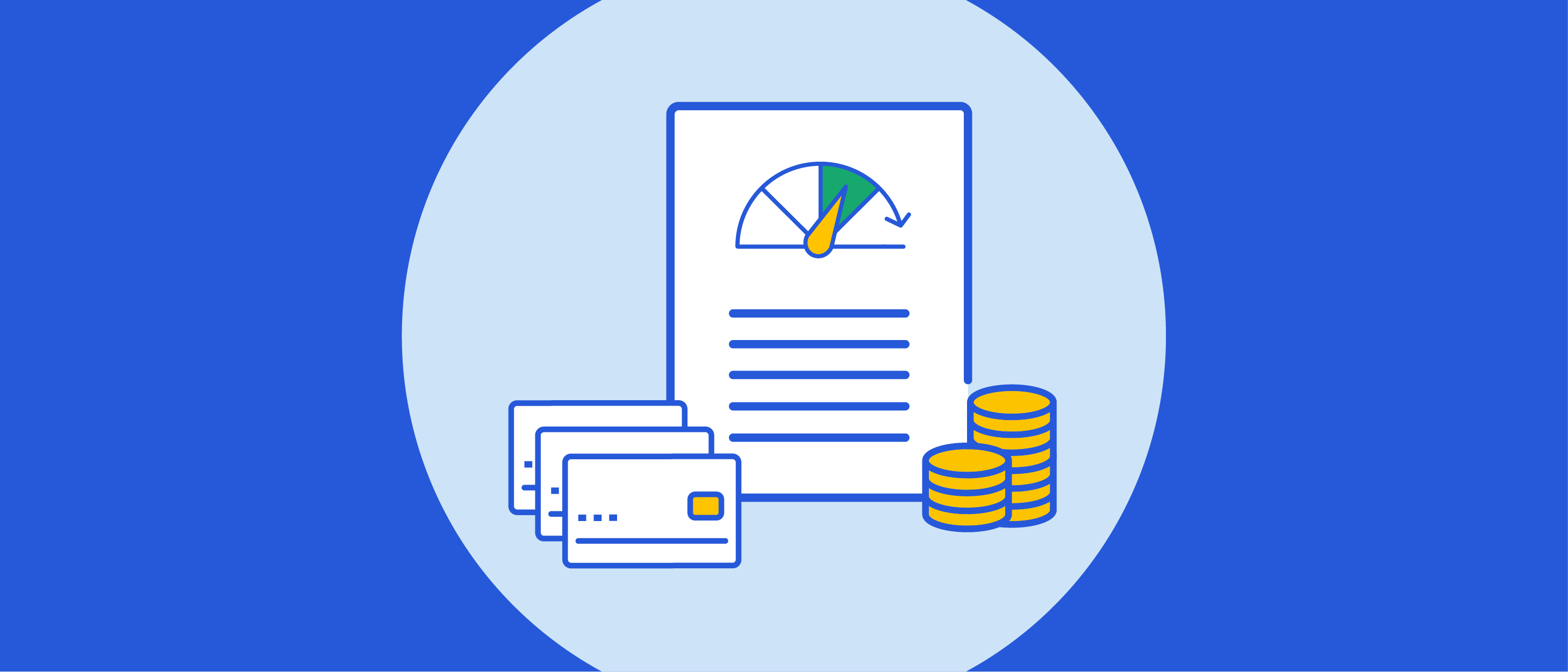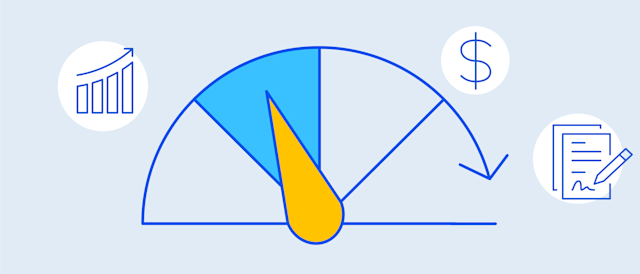What Is Credit, and Why Is It Important?

Summary
Learn what credit is and why it matters. Explore types of credit, how credit scores work, and tips to build or improve your credit with confidence.
In this article:
From payment terminals asking, “Debit or credit?” to advertisements reminding you to check your credit report, credit plays a central role in everyday life. But what exactly is credit, and why is it so important?
At its core, credit is a financial agreement to borrow money with the promise to repay it later, typically with interest (the cost of borrowing money) and fees — like a credit card, personal loan or mortgage.
Credit affects many parts of your life, from getting approved for an apartment to applying for a personal loan. Understanding how it works and how to use it responsibly may help you avoid potential borrowing pitfalls and work toward milestones.
Types of credit
Before you apply for credit, it’s helpful to know your options. Each type of credit has its own features and benefits. One type may suit your needs better than another.
Revolving credit
Revolving credit lets you borrow money over and over, up to your credit limit. A credit limit is the maximum amount of money the lender allows you to borrow. The amount you spend each month, along with interest, fees and unpaid charges from previous months, is called your balance. Your credit limit minus your balance is the available credit you can use. As you pay back your balance, you can use the remaining available credit. Credit cards and personal lines of credit are common forms of revolving credit.
Each month, you must make at least a minimum payment to avoid being past due and incurring late fees in addition to the interest you are charged. The minimum payment amount is calculated by your lender and can change depending on your balance, interest and any fees you owe. Revolving credit accounts charge interest on any balance you carry from month to month. That means the longer you take to pay off your balance, the more interest you’ll pay. Revolving credit also shows up on your credit report.
One benefit of revolving credit accounts is that they generally stay open if you keep your account in good standing. As long as you have credit available, you can borrow without having to apply for a new line of credit each time you need money. To avoid extra interest charges and impacts on your credit score, it’s a good idea to make more than the minimum payment or pay the statement balance in full when you can.1
Installment credit
With installment credit, also called an installment loan, you borrow a lump sum and repay it over time in fixed monthly payments. Once you’ve paid off the loan, the account is considered closed. You’ll need to apply for new credit if you want to borrow again. If you’re looking for installment credit options, OneMain offers personal loans from $1,500-$20,000.
Like revolving credit, installment credit involves a payment each month. Lenders also typically charge interest — and potentially additional fees. Installment credit shows up on your credit report, too.
Unlike revolving credit, however, installment credit typically offers set monthly payments. If you’re approved for an installment loan, you’ll know from the beginning the specific amount you need to pay each month, and you’ll have a set payoff date. Your monthly payment amount will stay the same over the term of the loan as long as you make your payments on time, every time.
Mortgages, auto loans and personal loans are all examples of installment credit.2 Buy now, pay later, where you pay off a larger purchase in smaller monthly amounts, is another kind of installment credit you might encounter.
Service credit
When you receive a service first and pay for what you use later, you’re using service credit. Electricity, cell phone service and water all fall into this category. Your monthly bill changes based on your usage, and unlike revolving or installment credit, you don’t carry a balance as long as you make payments in full each month.
Unlike revolving and installment credit, service credit usually does not appear on your credit report unless the payments are delinquent or overdue.3 If you fail to make payments, you may be charged late fees, or your service may be shut off altogether.
What is a credit report?
You can think of your credit report as a record of your financial habits and history. Your credit report includes details about your past and current credit accounts, like how much total credit you have, how much you owe, how much is available, the dates your accounts were opened or closed and whether you’ve missed any payments. Public records, such as bankruptcy, may also appear on your credit report.4
There are three main credit reporting bureaus (companies that track credit): Equifax, Experian and TransUnion. Not every lender reports your payment activity to all three, so your credit report could vary between credit bureaus.5 You’re entitled to a free copy of your credit reports from all three bureaus every week at AnnualCreditReport.com.6 Many banks and credit card issuers also offer free credit reports.
What is a credit score?
A credit score is a three-digit number that lenders use to gauge how likely you are to repay your debts. There are two main credit scoring models: VantageScore® and FICO®. Scores in both models range from 300 to 850. A favorable credit score could improve your chances of approval when you apply for credit and help you qualify for more favorable interest rates and terms for loans or credit cards.7 A higher credit score may also allow you to qualify for a higher limit on your credit card or a larger loan amount. If you’re a current OneMain customer, you can easily access your VantageScore® credit score by logging in to your account summary page online or using the OneMain mobile app.
How is your credit score calculated?
Credit bureaus typically look at these factors to calculate your credit score:8,9
- How many credit accounts you have
- How long your credit accounts have been open
- What types of credit accounts you use (referred to as your credit mix)
- How much credit you’re using compared to how much you have available (referred to as your credit utilization ratio)
- Your payment history
- How much total debt you have
Each credit bureau may weigh these factors differently.10
Building and improving your credit
People often use words like “good” or “bad” to describe credit scores, but every lender has their own requirements, and they vary widely. Some lenders base their lending decisions entirely on credit scores. OneMain takes your whole financial picture into account, not just your credit score.
If your credit score isn’t as high as you want it to be, you may be able to raise it over time by building responsible borrowing habits.
How to build credit for the first time
If you don’t have much experience using credit, don’t worry. You can begin building credit by: 11,12
- Applying for a secured personal loan or credit card: Secured personal loans and secured credit cards are backed by collateral, which is something of value that you possess. In the case of a secured personal loan, collateral tends to be an item like a car. A secured credit card is typically backed by a cash deposit in an interest-bearing savings account that becomes your credit limit. New borrowers may find it easier to get approved for secured than unsecured credit. If you don’t repay credit according to the terms of your agreement, the lender has the right to take your collateral.
- Taking advantage of bill reporting services: You may be able to use a third-party service to report payments for service credit accounts, such as rent or utility bills, which aren’t usually included on your credit report.
- Practicing healthy payment habits: If you do get approved for a credit card or loan, be sure to make your payments on time. If you’re using a credit card, consider keeping your balance under 30% of your total credit limit.
Ways to improve your credit
If you already have some credit history but want to improve your credit score, consider these tips:
- Make payments on time: The VantageScore and FICO credit scoring models consider your payment history the most important factor when calculating your credit score. Consistently making at least the minimum payment could help improve your credit score over time.13
- Avoid maxing out credit cards: Spending up to your credit limit or “maxing out” your credit cards raises your credit utilization ratio. Paying down balances and spending less than 30% of your available credit could help improve your score.14
- Keep longstanding accounts open: Lenders may view a longer account history as a sign that you can manage credit responsibly.
- Apply for new credit accounts with care: When you apply for new credit, a lender will typically check your credit report before approving you — known as a hard inquiry. One hard inquiry could lead to a small, temporary dip in your credit score. However, multiple hard inquiries could lead to a significant drop.15 To avoid an impact on your credit, consider looking for prequalified offers, which may give you an idea of your chances of approval before you formally apply. When you check for prequalification, you’ll generally trigger a soft inquiry on your credit report, which doesn’t affect your credit.
Using credit responsibly
It’s important to remember that mismanaging your credit can have consequences. Missing payments, paying late or carrying a balance on a credit card can impact your credit score and lead to a cycle of debt that is hard to escape. If you have a secured loan or credit card, you also risk losing your collateral if you don’t repay according to the terms of your agreement.
Whenever you take out new credit, be careful of overspending and be sure you can afford the monthly payments.
Making credit work for you
Credit is more than a card to pay for groceries or a number you read on a report. Credit is a tool. It may help you stretch your budget, plan for unexpected expenses or simplify your day-to-day spending. And when you use credit thoughtfully, you may increase your borrowing power for the future.
Sources:
1,2 https://www.equifax.com/personal/education/credit/score/articles/-/learn/revolving-credit-vs-installment-credit/
4,12,13 https://www.nerdwallet.com/article/finance/what-is-credit
3 https://www.experian.com/blogs/ask-experian/what-is-service-credit/
5,9,10,15 https://www.equifax.com/personal/education/credit/score/articles/-/learn/how-is-credit-score-calculated/
6 https://consumer.ftc.gov/you-now-have-permanent-access-free-weekly-credit-reports
7 https://consumer.ftc.gov/articles/understanding-your-credit
8,14 https://www.experian.com/blogs/ask-experian/credit-education/faqs/what-is-credit/
11 https://www.experian.com/blogs/ask-experian/how-to-build-credit-with-no-credit-history/
This article is for general education and informational purposes, without any express or implied warranty of any kind, including warranties of accuracy, completeness, or fitness for any purpose and is not intended to be and does not constitute financial, legal, tax, or any other advice. Parties (other than sponsored partners of OneMain Financial (OMF)) referenced in the article are not sponsors of, do not endorse, and are not otherwise affiliated with OMF.



